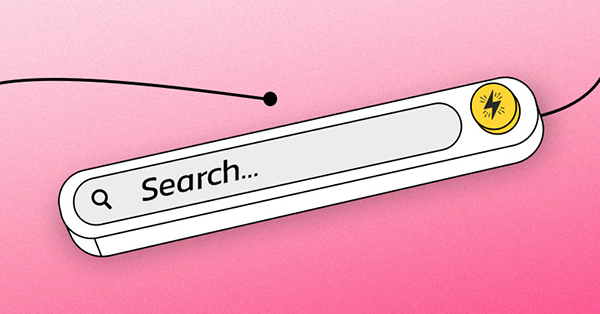In the fast-paced world of PPC marketing, it’s easy to overlook the potential of broad match keywords amidst the flood of shiny new product announcements. However, the effectiveness of broad match has significantly improved in recent years, prompting Brainlabs to explore its full potential.
This report dives into the combination of broad match keywords with Google’s AI-powered automation features, specifically focusing on fully automated conversion-based bidding. Through extensive testing, Brainlabs discovered impressive performance improvements, with a median uplift of +19% and even higher gains when combined with AI automation.
We’re sure there’s plenty here for you to experiment with and apply to your own marketing strategies.
Alessandro Creso VP of Paid Search, North America
Supercharging Broad Match Using AI-Powered Automation
Search…
Brainlabs’ review of using broad match for fully automated conversion-based bidding
Index
- Broad match for fully automated conversion-based bidding in review 03
- Why pair AI-powered Automation with broad match keywords? 04
- So, what were our findings? 05
- Make sure your campaigns are eligible for testing 06
- What should you watch out for? 07
- The trade-off between incrementality & efficiency 08
- In conclusion 09
Broad match for fully automated Conversion-based bidding in review
As a PPC marketer, you’re bombarded with countless shiny new product announcements promising to maximize performance and make the most out of a limited paid marketing budget. Amidst the numerous new initiatives, it’s easy to overlook broad match keywords, which have been present since the launch of Google AdWords.
The effectiveness of broad match has improved tremendously over the past two years. Results from initial tests prompted Brainlabs to be at the forefront of testing broad match keywords in our clients, and our large cross-vertical tests showed consistently strong performance improvement. Spoiler alert: Our previous test showed a stunning potential of a +19% uplift!
You can find our first broad match report here.
But, what if you could get even more from broad match?
Having proven the success of modern broad match, we set out to identify the fastest ways to scale deployment of this match type across hundreds of accounts around the globe. We quickly identified a solution: broad match keywords paired with Google’s AI powered automation features, in other words, broad match for fully automated conversion-based bidding.
Read on to check out our findings, plus how to apply the key learnings from our testing to your roadmap.
Why pair AI-powered automation with broad match keywords?
Google suggests that advertisers using target CPA bidding who upgrade their exact match keywords to broad match see an average increase of 35% more conversions.
Whilst the exact figure may vary depending on the nature of the test – for instance, if your KPI is conversion value rather than total conversions – broadly speaking, the number you hear won’t deviate too far from this 35% mark.
Although we’re clear on the benefits of using broad match keywords, manually choosing which campaigns in our accounts should use broad match is time-consuming and creates opportunities for user error.
That’s where Google’s AAR (Auto-Applied Recommendations) comes into play. It takes the heavy lifting and guesswork out of implementing and testing broad match keywords – elevating overall campaign performance without simultaneously increasing manual workload.
Automate recommendations to save time
Implementation of broad match via Google’s Auto-Apply Recommendations has two main benefits:
- Google’s AAR system selects and launches broad match keywords, effectively scaling broad match adoption.
- Drive incremental conversions Capture additional signals that wouldn’t be possible without Google’s AAR system. What’s more, recommendations will only surface if performance estimates indicate a potential increase in conversions from adding broad match keywords.
So, what were our findings?
We not only observed a consistently positive median increase across accounts, but also achieved this increase with minimal manual effort.
At Brainlabs, we are committed to running a continual process of test and learn via our bespoke Hippocampus database, in order to give our clients the very best solutions to their marketing challenges. Hippocampus enables us to run large scale multi-client experiments, and track the results globally, across the agency.
Now let’s get onto the good stuff…
Our recent testing of broad match through AAR uncovered major findings that corroborate Google’s claims of increased conversions and enabled us to efficiently accelerate our utilization of broad match.
Broad match keywords paired with Google’s AI powered automation outperformed not only exact and phrase match keywords, but also our initial test of broad match keywords selected manually.
Tests Analyzed
10 Advertisers 6 Verticals
median uplift in performance driven by broad match via AAR test
Broad match for fully automated conversion-based bidding saw an even bigger uplift of +27% total conversion volume.
On average, broad match via AAR can save 2 hours per account in implementation compared to manually selecting keywords to upgrade to broad match.
Make sure your campaigns are eligible for testing
Before implementation of Google’s AAR, here’s what you should know in order for your campaigns to be eligible for testing broad match for fully automated conversion-based bidding:
Checklist
- Campaigns must be utilizing a fully automated bid strategy For example: tCPA, tROAS, Max. Conv., Max. Conv. Value
- Campaigns should be defined as non-brand (<75% of spend from brand queries) If there are accounts that have several brand keywords that are ambiguous and could be misidentified as non-brand, you may want to omit those from the AAR Recommendation opt-in.
- Campaign must have existing Exact and/or Phrase match keywords for Suggested broad match keywords to be triggered This recommendation would then add a broad match version when it is predicted to improve performance objectives.
What should you watch out for?
Through our testing we observed positive results overall. Broad match for fully automated conversion-based bidding drove incremental conversions not captured by phrase and exact match keywords when Google’s AI-powered automation activated new broad match keywords, even with a mix of KPIs and verticals in the test.
Top tip
If you’re keen to replicate the success we saw, here are our key learnings to keep in mind:
It’s important to know that broad match for fully automated conversion-based bidding only surfaces if performance estimates indicate a potential increase in conversions from adding broad match keywords.
Activation 1
In some instances, Google’s Auto-Apply Recommendation – broad match for fully automated conversion-based bidding did not implement any new broad match keywords.
So, what happened?
When broad match for fully automated conversion-based bidding did not activate, broad match keywords were already outperforming other match types.
Categorization 2
When deciding where to apply broad match for fully automated conversion-based bidding, Google’s system will look at the queries driving spend in the campaign:
- If the majority of the spend is driven by brand queries, broad match for fully automated conversion-based bidding would not apply the recommendation, as it’s intended only for non-brand/generic campaigns.
- However, in some brand campaigns, if the majority of the spend is on terms perceived to be generic by Google’s AI-powered automation system, this can cause broad match for fully automated conversion-based bidding to misclassify these campaigns as non-brand – as we saw in a few of our accounts. Google is said to be launching additional improvements this year to boost accuracy.
How to avoid AAR misclassification
- Proactive Solution: The system is not perfect, so if there are accounts that have a lot of brand keywords that are ambiguous and could be misidentified as non-brand, you should omit those from the Auto-Apply Recommendation opt-in.
- Reactive Solution: For peace of mind, you have the ability to review and revoke changes if you need be. Fastest path to reverse these changes is through the Change History.
The trade-off between incrementality & efficiency
In our initial tests this powerful automation solution drove consistent incremental conversions, impressions, and clicks that these campaigns wouldn’t have received if broad match keywords were manually selected.
However, we also observed that these new broad keywords had a less efficient CPA.
We plan to keep a close eye on each of these metrics as we expand our testing to a larger group of clients and as Google continues to refine this feature throughout the coming months.
| Clicks | Impressions | Conversions | Cost | CPA |
|---|---|---|---|---|
| +29% | +186% | +27% | +74% | +37% |
Your guide to best practices
- Smart Bidding + Attribution + Budget Use fully automated Smart Bidding strategies aligned to your goals in combination with Data-Driven Attribution models and ensure budgets aren’t limited to be able to capture increased conversions.
- Set the Right Conversion Value Ensure you have set the right targets for your business goals. Make sure the conversion data being passed on to Google accurately reflects the data of your business.
- Creative Use Responsive Search Ads, Sitelinks and Image Extensions and ensure your ad copy & landing pages fully reflect queries being targeted.
- Negative Targeting Be mindful of negative Keywords accumulated over the years. Regularly work with negative Keyword targeting to refine your queries.
In conclusion
To summarize, our testing of pairing broad match keywords with Google’s AI-powered automation features resulted in:
- 27% Total conversion uplift
- 77% Of our clients saw conversions increase
- 70% Less time spent optimizing broad keywords
Whilst many PPC marketers will still have doubts about broad match, we implore you to reconsider. Google has made significant advancements over the past two years to keep up in the ever evolving world of search – all whilst delivering incremental performance gains with minimal upfront time investment .Beyond this, AI can drive value and growth for your business.
Yet while automation is the number one driving factor behind product releases and development, it’s imperative that the use of AI is guided by the right strategy.
Marketers should embrace AI – but as a tool rather than a replacement for humans. After all, the ability to improve marketing is made so much more powerful when humans and AI collaborate to augment each other.
When applied correctly, broad match and AI-powered automation features should be considered crucial elements of your search activity. The proof is in our data.
Get in touch
Gyn Ang APAC SVP gyn.ang@brainlabsdigital.com
Leo Jennings UK SVP, GROWTH leo@brainlabsdigital.com
Rachelle Risner VP, NEW BUSINESS rachelle.risner@brainlabsdigital.com
Follow us for more powerful insights! brainlabsdigital.com
APAC EMEA North America




